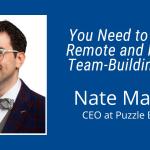
82% of all survey respondents have higher job satisfaction if they can work from anywhere, according to a new survey by VMware of 5,300 HR, IT, and business decision makers and employees. Of those participants who work in a hybrid or remote modality, 56% say their teams have increased creativity and 55% report increased collaboration since before the pandemic. No wonder that 74% of U.S. companies are adopting a permanent hybrid model, according to research by Zippia.
Yet middle managers are feeling the strain. A Future Forum survey shows that 43% of middle managers report burnout, more than any other group of workers. The particularly large burden on middle managers stems, in large part, from the burden of implementing company policies on hybrid work and the return to office. What happens typically, from my experience of helping 21 companies transition to hybrid work, is that executives decide on policies and leave it up to middle managers to implement them.
That approach works well with clear, straightforward policies that managers know how to implement well based on prior experience. But managers have no experience with making the transition to hybrid work and then managing hybrid teams. Naturally, they try to shoehorn what they know – office-centric management methodologies – into hybrid-centric work. Then, they feel burned out when the results don’t measure up to expectations.
Instead, to excel in the hybrid work transition and hybrid team leadership, managers need to adopt the five keys to hybrid management success, which differ markedly from office-centric management. These keys are: intentionality, not automaticity; trust, not paranoia; autonomy, not micromanagement; connection, not presence; finally, accountability, not facetime.
First Key for Being an Effective Hybrid Manager: Intentionality, Not Automaticity
It’s easy for managers to go on autopilot and do what they always did in the past. After all, why change something if it worked in the past, right?
This conservative strategy works well – most of the time. The problem comes from the times when the context changes, such as the transition to hybrid work.
A context shift requires a transformation from automaticity to intentionality. Instead of doing the same thing as before on autopilot, managers have to recognize the need to change, intentionally, their management style to fit the new context.
Unfortunately, our brain is poorly suited to making such intentional changes, due to cognitive biases, which are mental blindspots that lead to poor decision-making.
One of the biggest problems for effective management in hybrid work is the status quo bias, a desire to maintain or get back to a situation our brains perceive as comfortable and appropriate. This bias helps explain why managers are trying to turn back the clock to January 2020, a time when they were comfortable and in control.
A related cognitive bias that poses a challenge for hybrid work management is called functional fixedness. When we have a certain perception of how to function, we ignore other possible ways to function, even if the new ones would offer a better fit for a changed situation. That’s why so many managers try to shoehorn office-centric management methods into hybrid work, despite the obvious problems with doing so.
Addressing this set of problems requires middle managers to recognize when the context shifts, and then shift from automaticity into intentionality. They need to figure out the best methods to manage in this new environment, while accepting that they will be uncomfortable and not know all the answers in doing so. Having helped 21 organizations make the transition to hybrid work – ranging from mid-size nonprofits such as the University of Southern California’s Information Sciences Institute to Fortune 500 giants such as the high-tech manufacturer Applied Materials – I can attest that the discomfort that stems from the sense of losing control and confidence in their abilities poses the biggest obstacle for middle managers in effective hybrid management.
Second Key for Being an Effective Hybrid Manager: Trust, Not Paranoia
Microsoft released a new study, where it found that 85% of leaders say that the “shift to hybrid work has made it challenging to have confidence that employees are being productive.” This lack of trust in worker productivity has led to what Microsoft researchers termed productivity paranoia: “where leaders fear that lost productivity is due to employees not working, even though hours worked, number of meetings, and other activity metrics have increased.”
This failure to trust their subordinates to be productive remotely goes squarely against the evidence. Extensive research – in the form of surveys, employee monitoring software, and the gold standard of randomized control trials – conclusively demonstrates that employees are on average 5-10% more productive working remotely, especially on their individual tasks. And given we’re talking about hybrid work, employees can do their collaborative tasks in the office: that’s the best use for the office.
However, middle managers have difficulty trusting that employees who they aren’t observing are being productive. Such a focus on having employees be visible in the office speaks to a highly traditionalist leadership mindset, underpinned by the illusion of control. This cognitive bias describes our mind’s tendency to overestimate the extent to which we control external events. The tendency is especially prevalent in executives who want to micromanage their employees. They believe that having employees present in the office guarantees productivity.
In reality, research shows that in-office employees, even high-performing and productive ones, work much less than a full eight-hour day. They actually spend anywhere from 36% to 39% of their time working. The rest, according to these studies, is spent on other activities: checking social media, reading news websites, chit-chatting with colleagues about non-work topics, making non-work calls, and even looking for other jobs.
Middle managers need to learn to let go of their false beliefs that “when the cat’s away, the mice will play.” In fact, people will live up to your expectations: if you expect them to perform, and show you trust them, they will live up to your expectations, by and large. Moreover, the research clearly shows they will outperform when working from home on their individual tasks.
Third Key for Being an Effective Hybrid Manager: Autonomy, Not Micromanagement
The desire of many middle managers for control is not simply emphatically unrealistic. It also goes directly against a principle that we know is critical for productivity, engagement, and innovation for office-based workers: the desire for autonomy.
Studies show that we do our best work through intrinsic motivation, which involves autonomy and control over our work as a fundamental driver of effectiveness. Employees are most engaged, happy, and productive when they have autonomy. A study of 307 companies finds that greater worker autonomy results in more innovation. And a recent survey by Metis indicated that 80% of respondents said they either prefer independence with moderate oversight (45%) or require a high level of independence at work (34.5%).
For middle managers, a key component of autonomy in the post-pandemic environment involves giving workers flexibility and self-control of where and when they work, rather than trying to shoehorn them into the pre-pandemic “normal.” The best approach involves giving such flexibility to a whole team, and having them determine their own approach to flexibility. When it comes to hybrid work, 46% of employees reported being engaged when their team determines their own policy of when to come into the office, according to a recent Gallup survey. By contrast, 41% of respondents are content to make the decision individually, and just 35% reported being engaged if leadership determines the top-down policy for everyone.
Fourth Key for Being an Effective Hybrid Manager: Connection, Not Presence
One of the biggest challenges for remote work involves addressing weakening connections among staff members. But only specific types of connections grew weaker. In fact, according to a recent survey by Covve, 67% report their overall relationships with colleagues grew stronger.
Diving deeper, it’s the connections between team members that grow stronger when teams work part or full-time remotely, as research by Microsoft found. The problem comes from the decrease in cross-functional connections between teams, which weaken with remote work. Such “weak ties” are valuable for the kind of cross-disciplinary innovation that can drive growth, which might be hampered by remote work, according to an MIT study.
In office-centric roles, such weak ties form naturally from people on different teams being present in the same office. Yet in hybrid contexts, effective middle managers need to cultivate such weak ties intentionally.
One way that managers can facilitate weak bonds involves in-person events that bring members of different teams. Middle managers can organize social events, such as happy hours, escape room trust-building events, or group volunteer activities. Or they can offer in-person training that deliberately involves members of different teams interacting together. They can also consider remote social activities that help build weak ties, such as video game sessions or virtual escape rooms.
Another tool of doing so: scholars discovered that connecting junior staff with different senior staff as mentors offered a very effective way to extend the network and build the weak ties of junior staff. An added benefit: such pairings help junior staff gain on-the-job training and become integrated into the organization.
Fifth Key for Being an Effective Hybrid Manager: Accountability, Not Facetime
The traditional means of managers evaluating staff and holding them accountable relies on facetime: seeing and talking to their subordinates throughout the year, and giving them an annual review. In the hybrid work environment, this facetime approach is vulnerable to proximity bias, meaning a concern that managers will value more highly those subordinates that they see more often.
Indeed, a Society for Human Resource Management (SHRM) survey of more than 800 supervisors found that 42% admitted they sometimes forget about remote workers when assigning tasks. This may explain why remote workers get promoted less often than their peers, despite being 15% more productive on average.
Yet equating facetime to accountability is not only unsuitable for hybrid work; it also didn’t work well in the in-person environment, given that office-centric employees only spent 36% to 39% of their time working. Effective hybrid managers focus on meaningful goals and outcomes that advance their team’s business objectives, rather than the amount of time someone spent working.
Doing so can be as easy as integrating a performance evaluation element into the weekly one-on-ones that many middle managers already schedule with their supervisees. At each weekly meeting, the manager and supervisee would agree on three to five key goals for the employee to achieve. Then, at the next meeting, the supervisee would report to the manager on how they did on the goals. The manager can coach the supervisee on solving any problems encountered, and provide a weekly performance evaluation. That way, all team members would know where they stand and any areas they need to work on to improve their performance. The meeting would end with the manager and supervisee agreeing on the three to five goals for the next week.
Conclusion
intentionality, trust, autonomy, connection, and accountability represent the five keys to turning a traditional office-centric manager into an effective hybrid manager. Abandoning office-centric methods requires acknowledging that we’ll never return to the past; the pandemic accelerated the existing trends toward hybrid work, and with ever-improving technology, the future will involve more time working remotely, not less. Still, the office represents a valuable place to gather, collaborate, and socialize, and hybrid managers need to learn how to manage their teams effectively both in the work office and the home office. By understanding what kind of activities are best done where, and adopting managerial methods well-suited to hybrid work, modern managers will help their teams thrive in the increasingly-disrupted future of work.
Key Take-Away
Intentionality, trust, autonomy, connection, and accountability represent the five keys to turning a traditional office-centric manager into an effective hybrid manager… >Click to tweet
Image credit: Mart Production/Pexels
Originally published in Disaster Avoidance Experts
Bio: Dr. Gleb Tsipursky helps leaders use hybrid work to improve retention and productivity while cutting costs. He serves as the CEO of the boutique future-of-work consultancy Disaster Avoidance Experts. He is the best-selling author of 7 books, including the global best-sellers Never Go With Your Gut: How Pioneering Leaders Make the Best Decisions and Avoid Business Disasters and The Blindspots Between Us: How to Overcome Unconscious Cognitive Bias and Build Better Relationships. His newest book is Leading Hybrid and Remote Teams: A Manual on Benchmarking to Best Practices for Competitive Advantage. His cutting-edge thought leadership was featured in over 650 articles and 550 interviews in Harvard Business Review, Forbes, Inc. Magazine, USA Today, CBS News, Fox News, Time, Business Insider, Fortune, and elsewhere. His writing was translated into Chinese, Korean, German, Russian, Polish, Spanish, French, and other languages. His expertise comes from over 20 years of consulting, coaching, and speaking and training for Fortune 500 companies from Aflac to Xerox, and over 15 years in academia as a behavioral scientist at UNC-Chapel Hill and Ohio State. A proud Ukrainian American, Dr. Gleb lives in Columbus, Ohio.














